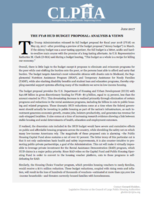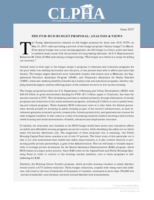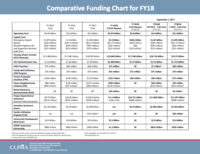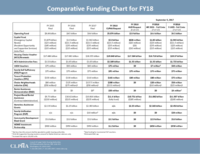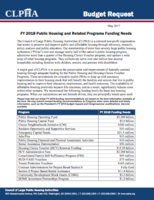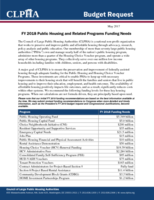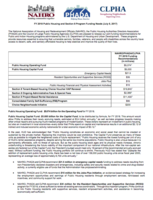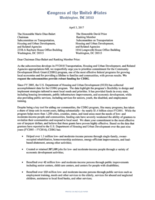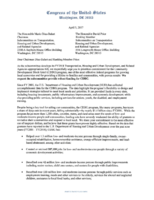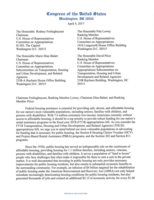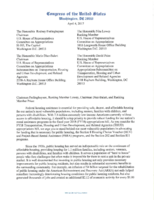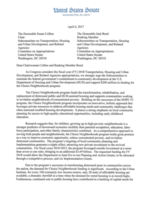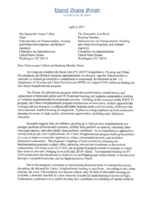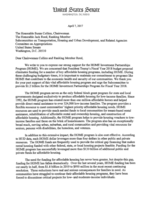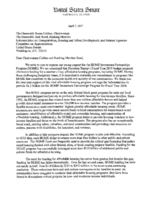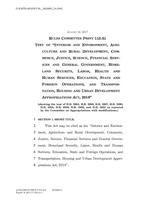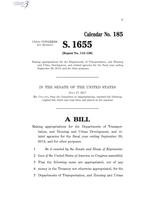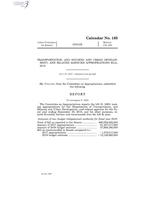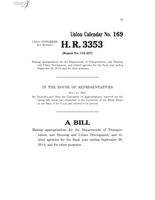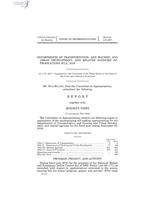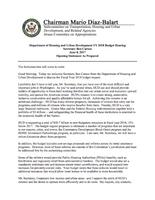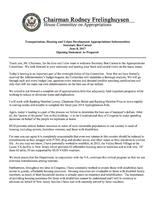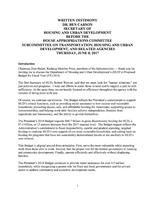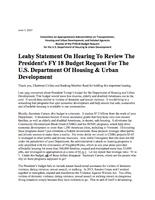The Trump Administration released its full budget proposal for fiscal year 2018 (FY18) on May 23, 2017, after providing a preview of the budget proposal (“skinny budget”) in March.
The budget proposal provided the U.S. Department of Housing and Urban Development (HUD) with $40.68 billion in gross discretionary funding for FY18—$7.3 billion, equal to 15 percent, less than the amount enacted in FY17. This devastating decrease is realized primarily through elimination of certain programs and reductions in the rental assistance programs, including $2 billion in cuts to public housing and related programs. These proposed dramatic HUD reductions come at a time when the federal government should be investing in public housing as part of the nation’s infrastructure, as such investment generates economic growth, creates jobs, bolsters productivity, and generates tax revenue for cash-strapped localities. It also comes at a time of increasing research evidence showing a link between stable housing and social determinants of health, education and employment outcomes.
In a direct repudiation of the President’s budget, both the House and Senate released FY18 Transportation, Housing and Urban Development (THUD) budget bills that provided $6.9 billion and $8.84 billion more funding than the Administration budget, respectively. See our Comparative Funding Chart for a more detailed look at the FY18 program funding numbers, including CLPHA’s request.
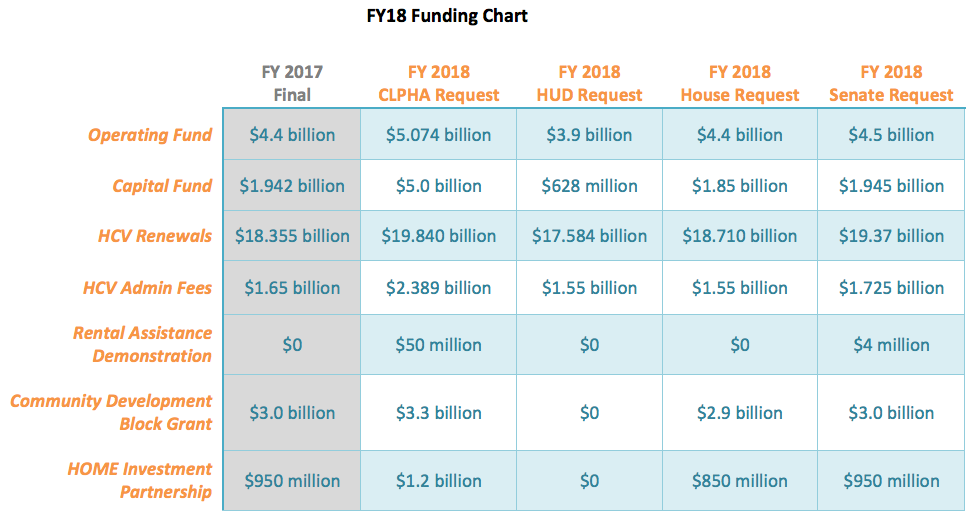
Current Status:
In July, Congress passed four security-related funding bills, but was unable to come to consensus on the remaining appropriations bills, including THUD. Following the U.S. Senate lead of the previous day, on September 8 the U.S. House of Representatives quickly and overwhelmingly passed (316-90) a three-month-long continuing resolution (CR) to keep the government funded until December 8. The CR was part of a short-term bundle that included a $15.25 billion aid package—as a down payment on hurricane disaster assistance, and a debt increase that extended the federal borrowing limit until Dec. 8. The CR was included in the package in order to give the House and Senate sufficient time to complete the FY18 appropriations process after the fiscal year begins on October 1. The Senate easily passed the bill by a vote of 80-17 after President Trump pledged his support the day earlier during a meeting with House and Senate leaders.
On September 14, the House passed HR 3354 (211-198) and sent it along to the Senate where its fate remains uncertain. HR 3354, colloquially known as the megabus appropriations bill, combines eight of the twelve appropriations subcommittee bills—including Transportation, Housing and Urban Development and Related Agencies (THUD)—into one funding measure.
